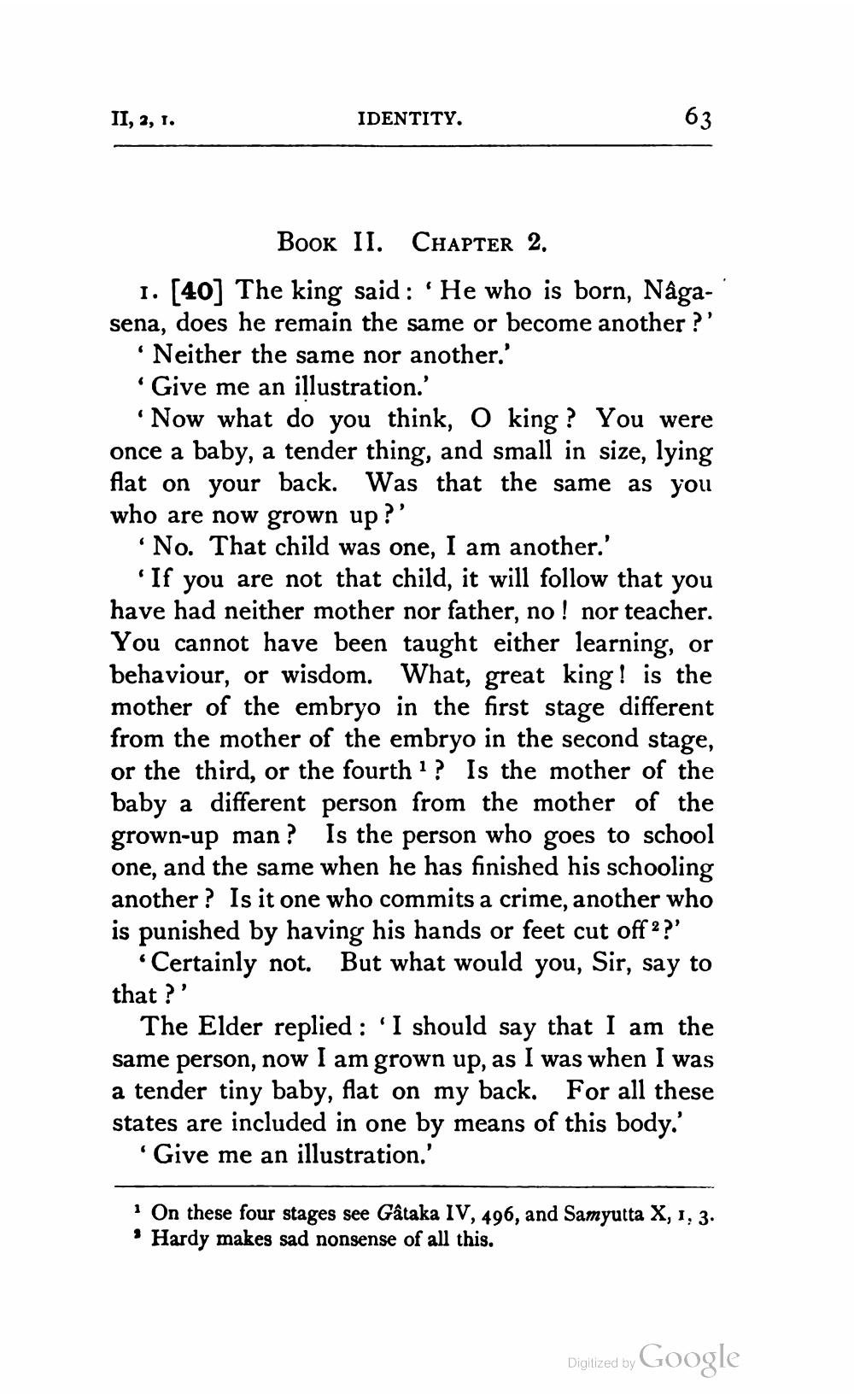________________
II, 2, 1.
IDENTITY.
63
Book II. CHAPTER 2. 1. [40] The king said: 'He who is born, Nâgasena, does he remain the same or become another ?'
*Neither the same nor another.' "Give me an illustration.'
Now what do you think, o king? You were once a baby, a tender thing, and small in size, lying flat on your back. Was that the same as you who are now grown up?'
No. That child was one, I am another.' 'If you are not that child, it will follow that you have had neither mother nor father, no! nor teacher. You cannot have been taught either learning, or behaviour, or wisdom. What, great king! is the mother of the embryo in the first stage different from the mother of the embryo in the second stage, or the third, or the fourth? Is the mother of the baby a different person from the mother of the grown-up man? Is the person who goes to school one, and the same when he has finished his schooling another? Is it one who commits a crime, another who is punished by having his hands or feet cut off ??'
Certainly not. But what would you, Sir, say to that?'
The Elder replied: 'I should say that I am the same person, now I am grown up, as I was when I was a tender tiny baby, flat on my back. For all these states are included in one by means of this body.'
Give me an illustration.'
On these four stages see Gâtaka IV, 496, and Samyutta X, 1, 3. * Hardy makes sad nonsense of all this.
Diglized by Google




